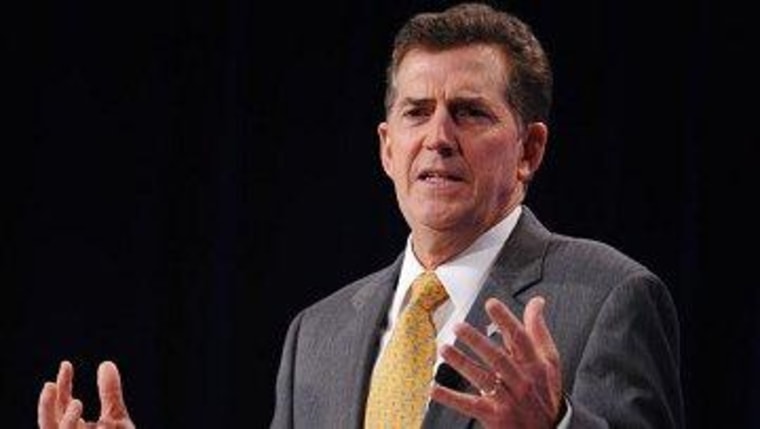Following up on an item from a few months ago, those who saw Mitt Romney's "47 percent" video as a "gaffe" missed the salience of the recorded remarks. The failed candidate didn't misspeak or stumble over his words; he created a firestorm by giving voice to a far-right ideology that condemns much of the country for being "dependent upon government" and believing that "government has a responsibility to care for them, who believe that they are entitled to health care, to food, to housing, to you-name-it."
After the election, it became fashionable in some Republican circles to not only blame the "47 percent" video for the party's 2012 difficulties, but also to condemn at least part of the message as needlessly divisive. But just below the surface, the party's "47 percent" problem never really went away.
In Virginia, for example, Republican gubernatorial hopeful Ken Cuccinelli published a book this year blasting those "dependent" on social-insurance programs like Medicare, Social Security, Medicaid, and food stamps. This week, another high-profile Republican echoed the sentiment.
Former Sen. Jim DeMint, the new president of the Heritage Foundation, began work there Thursday with a letter to the group's staff outlining his vision for the organization. Mitt Romney would find much to admire in it.Though he adjusted the former GOP presidential candidate's estimate that 47 percent of the voting population is "dependent upon government," DeMint doesn't stray far from the underlying message."Today, more people than ever before -- 69.5 million Americans, from college students to retirees to welfare beneficiaries -- depend on the federal government for housing, food, income, student aid, or other assistance once considered to be the responsibility of individuals, families, neighborhoods, churches, and other civil society institutions," DeMint wrote.
Are you a college-age student who can't afford high tuition rates? Too bad -- the important thing is you're not "dependent" on the government for student loans. Are you a senior citizen too old to earn a paycheck? That's a shame -- just make sure you're not "dependent" on the government for access to health care through Medicare.
Are you an oil company enjoying billions of dollars in annual subsidies from Congress? Well, apparently you don't count as "dependent" because, well, you're not poor.
Once in a while, the right will keep up appearances, and maintain the pretense that they support popular social-insurance programs like Social Security. But then 47-percent instincts kick in and the masquerade ends.
I suspect some may suggest DeMint is no longer in office, and from his perch at a far-right think tank, his positions don't necessarily reflect contemporary Republican orthodoxy. I don't buy it.
Jamelle Bouie had a sharp take on this.
Despite all the talk of a rift between DeMint and the GOP leadership, DeMint's views are representative of those held by many in the Republican Party and party leaders. Paul Ryan, for example, continues to push a budget plan that would gut spending for the poor -- thus ending dependency -- and funnel it to tax cuts for the rich, while new senators like Ted Cruz of Texas support massive cuts to the social safety net.In other words, there's little daylight between DeMint and actual Republican policy.
